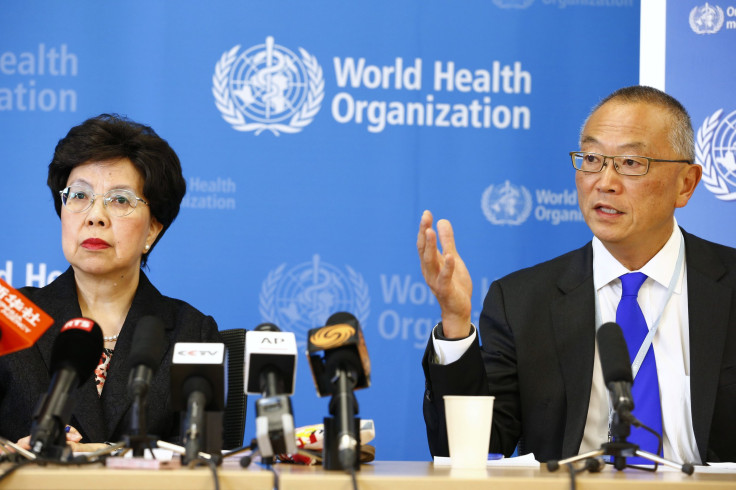World Health Organization Response To Ebola Outbreak 'Behind The Curve,' Report Says

The World Health Organization's response to the largest Ebola outbreak ever recorded was “behind the curve” in many ways, according to an independent panel of health experts, who say the international agency could have done more in the earliest stages and still isn't ready for future health crises.
“The countries most affected, other WHO member states, the WHO secretariat and the wider global community were all 'behind the curve' of the rapid spread of the Ebola virus,” reads the first of two reports from the panel of international medical experts. It noted the organization’s leadership “needs to take serious steps” to become a true leader against outbreaks and in emergency health situations, and to “regain the trust of the international community.”
The Ebola virus outbreak has left more than 11,000 people dead, mostly in Guinea, Liberia and Sierra Leone. Liberia recently became “Ebola-free,” and the other affected countries are well on their way but are nevertheless facing a massive economic and social crisis in the coming months and even years.
While the panel acknowledged “with deep gratitude” the health workers around the world who put themselves in harm’s way to fight the disease, it added it was clear the WHO as a whole was not as effective as it should have been.
Despite the fact that WHO drew attention to the “unprecedented outbreak” during an April 2014 press conference, the agency failed to follow up with “international mobilization and a consistent communication strategy,” the report said. It also said WHO failed to seek adequate support from other agencies to be effective.
“At an earlier stage these resources could have been made available and known systems put in place; these might have averted the crisis that led the need to establish the United Nations Mission for Ebola Emergency Response,” the report said.
Most importantly, the panel emphasized a lack of insight from health experts about the specific local conditions and challenges in the region. One of the key ways of keeping Ebola under control is spreading awareness about transmission and how to keep from being infected, but the WHO’s communications were inadequate, the report said.
“It is still unclear why WHO was not able to engage in a high-level media response with greater command over the narrative,” it said, noting although emergency media teams were put in place to manage the communications on Ebola as it developed, delays in reporting the outbreak as an official emergency, leaked documents and even “misleading Twitter messages” slowed the aid process.
This was the first of two papers to be filed by the panel, led by Barbara Stocking, president of Murray Edwards College at the University of Cambridge and former chief executive of Oxfam GB. The other is scheduled for June after the panel visits affected countries.
But for now, the panel members wrote the organization has a great deal of work to do: “At present, WHO does not have the operational capacity or culture to deliver a full emergency public health response.”
To help prepare for future health crises, the panel made a series of recommendations focusing on being prepared rather than reacting after the fact. For one thing, they asked WHO to create a new agency for emergency health situations, and member states to invest in the agency.
“The Ebola outbreak might have looked very different had the same political will and significant resources that were spent in responding to it been made available to member states and the WHO secretariat over the past five years,” the report said.
© Copyright IBTimes 2025. All rights reserved.






















